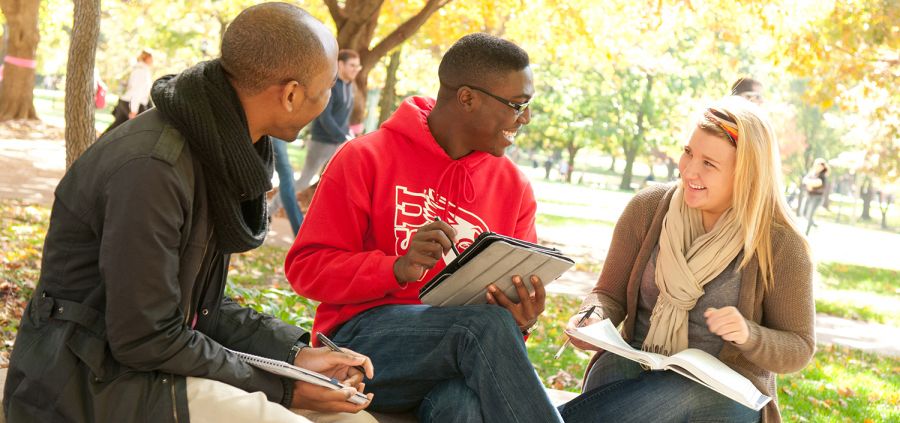On some level, everyone has biases or pre-conceived cultural notions. People may not always be aware of them, but they certainly influence communication and social interaction. Understanding those issues and learning to effectively interact with people from different backgrounds are at the heart of ongoing cultural competency training coordinated by the Diversity Council in the Division of Student Affairs.
The Diversity Council’s work addresses cultural competency on the individual level, across departments and division-wide. The ultimate goal is to enhance the already inclusive and welcoming atmosphere within Student Affairs and the Illinois State University community.
Angela Davenport, Dean of Students Office, and Jason Vasquez, Student Counseling Services, serve as the council’s co-chairs. Other council members are drawn from the Division of Student Affairs, Disability Concerns, Campus Recreation, Campus Dining Services and the Dean of Students Office.
The Diversity Council’s overall mission is to support the academic success of students from historically underrepresented groups, assist in the recruitment and retention of staff from underrepresented groups, and enhance the welcoming and supportive environment on campus. The group’s work is based on the Student Affairs Diversity Action and Assessment Plan and the Educating Illinois core value of diversity.
Davenport points out that cultural competency is not a one-size-fits-all concept. “It’s going to look different and mean something different to people in different day-to-day roles within Student Affairs,” she said. “A lot depends on the clientele that staff members and offices come into contact with, but the general principles of inclusivity and cultural awareness are the same across the division and campus-wide.”
Assessing levels of cultural competency and looking for ways to further increase it are part of the commitment to diversity within Student Affairs. That assessment takes place on all staff levels. “We have to ask ourselves how well we work with others who are different from us,” said Vasquez. “Attendees at a diversity workshop this past January had a very positive reaction to the diversity awareness and cultural competency sessions. As a result, we decided that those would be areas for ongoing training for Student Affairs staff.”
Training opportunities for Student Affairs staff include book clubs, discussions, webinars and peer-to-peer learning experiences. A new Diversity Council website will go live during the spring semester and will contain links to a number of resources, including the division’s cultural competency expectation guidelines, professional development materials, assessment tools and notices about upcoming events. Davenport compares the Diversity Council website to a clearinghouse for information on best practices in diversity awareness and cultural competency.
A training workshop on cultural competency is also being planned for spring. Student Affairs staff will examine subjects such as racism, privilege and inequality. The experiential nature of such training can be very eye-opening for participants as they take a deep look at their own beliefs and attitudes and learn more about how they react in different cultural settings.
“The training helps participants identify their cultural biases and triggers,” said Vasquez. “By recognizing interactions and experiences that trigger certain emotional and behavioral reactions, people can begin to look for ways to more effectively work with those who are different than themselves.”


